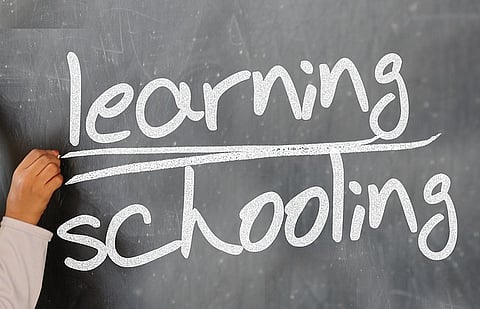

The News Minute | November 17, 2014 | 08:30 pm ISTSeventeen year-old Swarnalakshmi moved from Chennai, her hometown, to Pondicherry in pursuit of achieving her dream of studying in a regular school. A visually-impaired student studying in Chennai’s Little Flowers Convent special school, she always wanted to go to a regular, private school. “But when I approached some private schools in the city, they refused,” said Swarnalakshmi. “They said that their school name will be spoilt if they admitted me,” she said. Swarnalakshmi’s story is not something new. Not many schools in the city have provisions for admission of differently-abled students in their schools. Even though many special schools exist for the better development of children with different needs, the need for ‘inclusive education’ which aims to achieve the goal of creating ‘institutions which include everybody, celebrate differences, support learning, and respond to individual needs' is far from achieved.Margaret Sulojanabai, the principal at the Little Flower Convent however, said that other factors played a major role in allowing a differently-abled child to study in a special school. “There are many children studying in integrated schools. But resources should be there. Otherwise they can be neglected and discriminated by other students,” she said. “I feel a child’s whole development will be better if admitted in a special school.”,’ she said. Dheesha, an assistant professor at the Ramakrishna Vidyalaya in Coimbatore, an inclusive-education providing college that provides higher education for differently-abled students said that the institute provided education in three areas: visual impairment, hearing and retardation. “Teachers cannot say no. We have teachers trained for special needs,” she said. However, she added that most differently-abled students studied only in government schools. Even private schools need to provide such (inclusive) education, she said. Swarnalakshmi is a part of the Children’s Parliament which organizes meetings at the neighbourhood level for children. Allowing members from age 6 to 18, the children discuss important issues and follow up on discussions made at these parliaments. One such issue discussed by the group is inclusive education. Inclusiveness has a range of benefits, said Swarna. “ Children can join neighbourhood schools. They can be more confident about dealing with normal people. Also, others can relate to how to behave with these people,” she said enthusiastically. Swarnalakshmi’s mother who spoke to The News Minute said, “She is good in her studies and we can afford it . But she herself found it hard to get admission. Imagine those people who find it difficult”Sivakumar belonging to The Department of Welfare of Differently Abled Persons Department in Chennai said that admissions cannot be denied to anybody. They should not refuse anyone on the basis of disability, he said. “There should not be any partiality. However, the students once admitted must not be made to suffer if the facilities are not properly provided,” he said. However, other sources said that private schools have the right to deny admission to differently-abled students on the basis of unavailability of required facilities at schools; provision of Braille for learning as well as teachers specialized in handling special children. A long-term goal of the UNICEF has been to ensure ‘all children have access to and complete an education of good quality’. However, efforts towards improving numbers on the disability front have not improved drastically. The UNICEF 2013 State of the World’s Children Report states that key actions needed to be taken to help children with disability allowing inclusive education by ‘ building or retrofitting schools to eliminate physical, communicational,.. training teachers to foster a commitment to inclusion across schools and communities; collecting data about disability to fill gaps and monitor progress; and supporting Ministries of Education to take responsibility for educating all children, including those with disabilities, through an inclusive system’